In Ontario, there are only a couple of kinds of birds the size of a robin that I would call “all grey.” One is the Northern Mockingbird–They are mostly pale grey or almost white on the chest and stomach with noticeable white markings on the wings. They can be locally common in southern Ontario. The one I’m talking about today is a much darker grey and has no white marks on its wings. It’s also often hard to see because it spends a lot of time in thickets and shrubs even when it’s mewing and singing: this is the Gray Catbird.
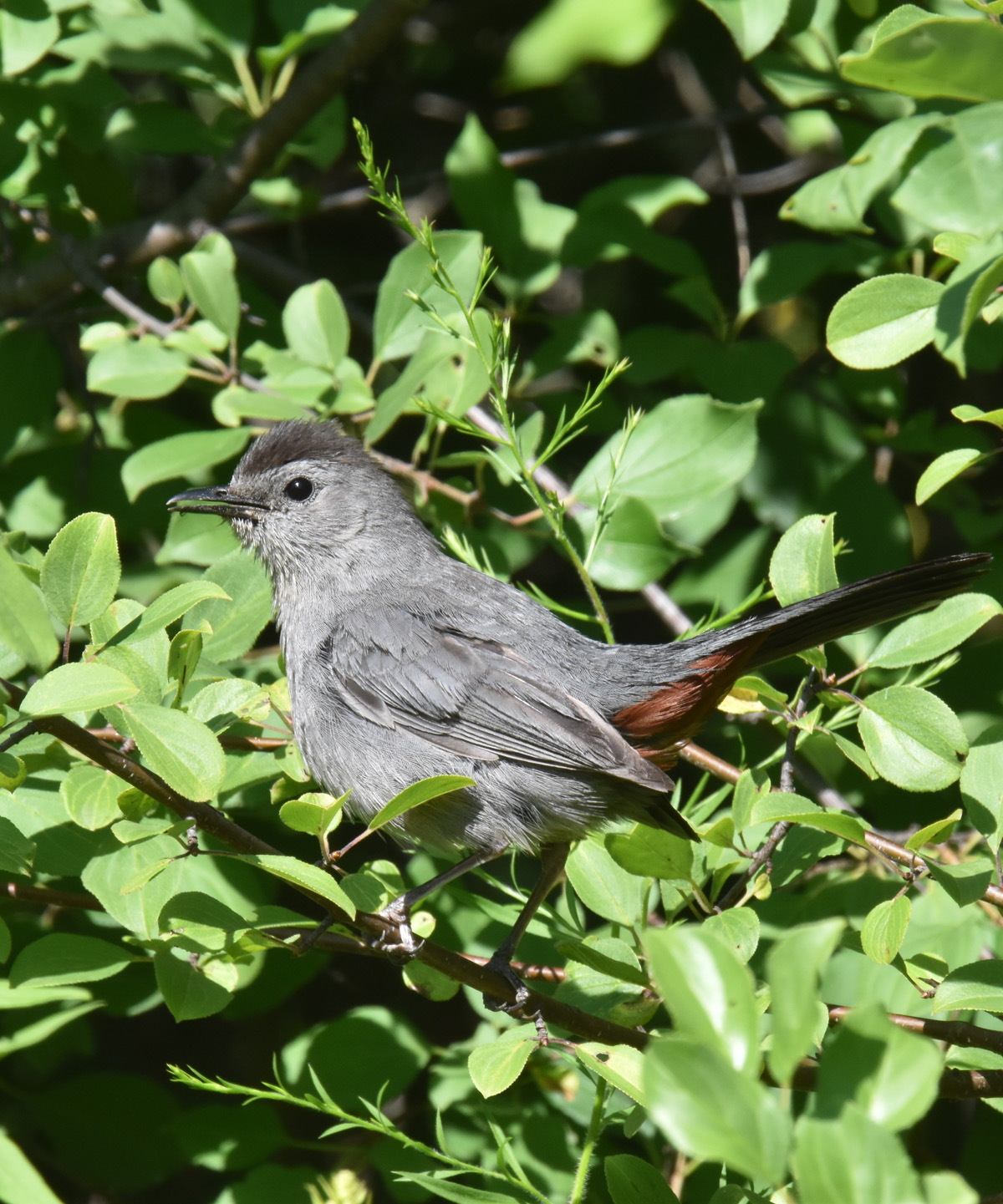
If you look closely, its bill is open: it’s mewing!
Gray Catbirds Are Well-Named
Unlike the American Tree Sparrows that I most often see feeding on the ground or on top of goldenrod and not in trees, Catbirds are aptly named. They have a simple call that sounds like “mew.” (not meow, by the way, just a simple contented mew.)
They also have about 100 other calls though that they jumble together into a type of song. They can mimic many other birds, including goldfinches and robins. They are pretty good at copying short mechanical sounds if they hear them often, such as a squeak from a swing set.
Luckily for me, they like to sing and will keep up a steady stream of sounds even while half-hidden in shrubs. That gives me a fighting chance of finding them for a closer look.
Gray Catbirds Do Have a Splash of Rusty Colour
Other times, Gray Catbirds will perch right out in the open and sing. That’s when I remember that they are not totally grey. Under the tail, they have bright rusty red feathers.
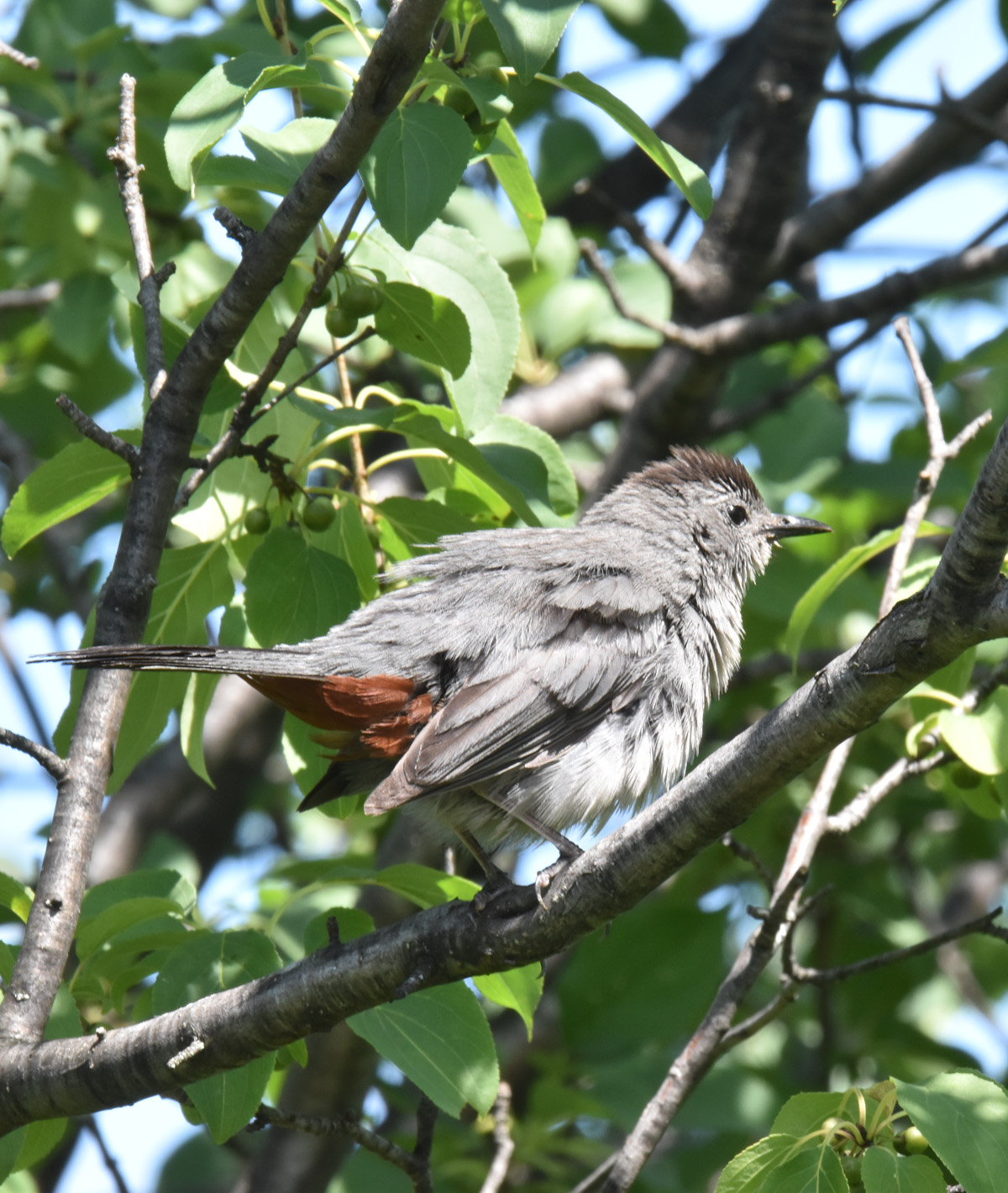
All birds prefer to show me the wrong end when I try to take their photos–at least you can see the rusty red feathers.
And they have a jaunty little black cap.
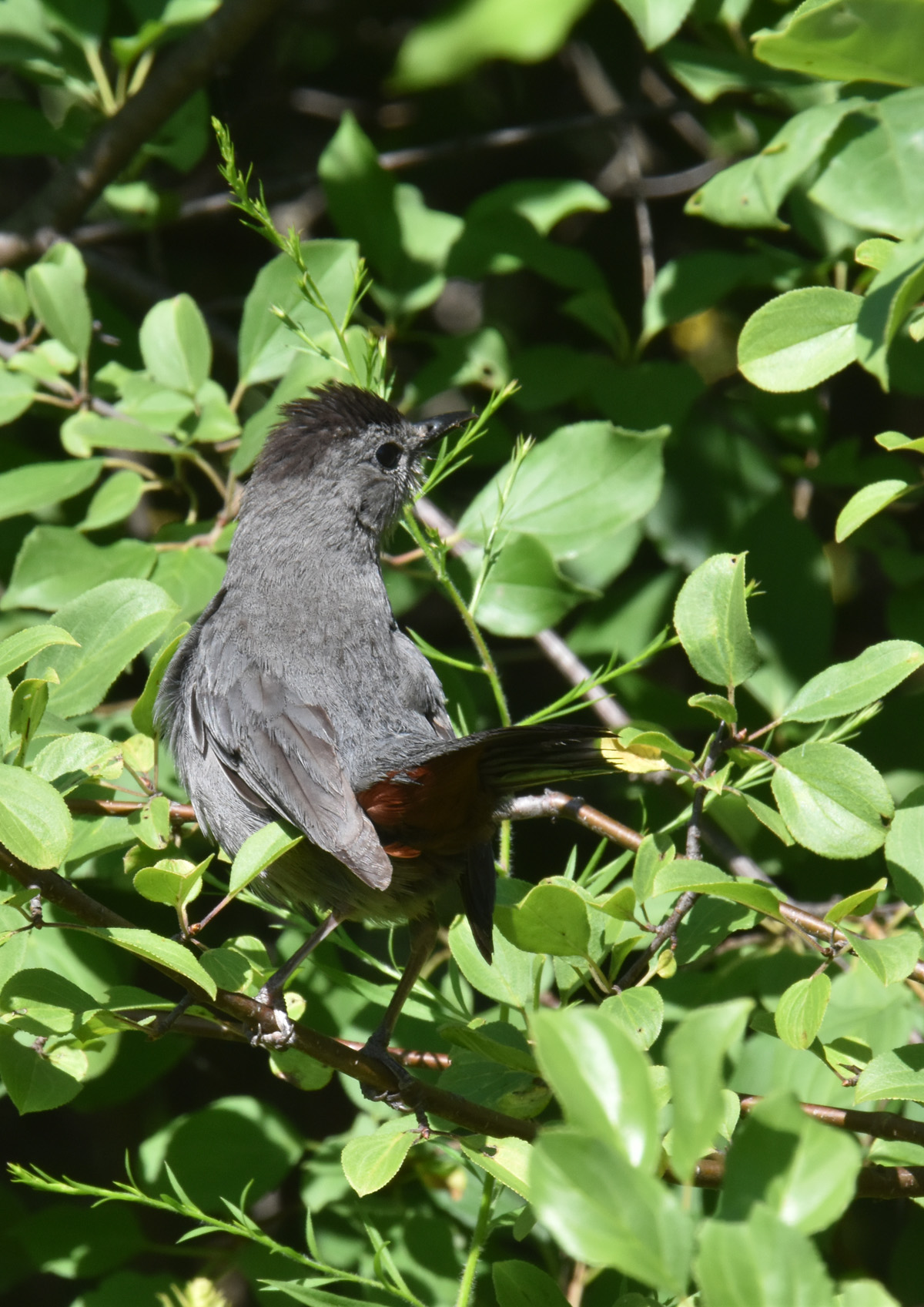
Sometimes the cap is a bit more noticeable.
What’s That Catbird Doing in the Dogwood Patch?
One reason I see Gray Catbirds in shrubs so much is that they like to eat fruit and berries. I’ve watched them gulp Red-osier dogwood berries, Riverbank grapes and even Staghorn Sumac drupes.
Like many birds, during the spring and summer in Ontario, they will eat many insects including caterpillars.
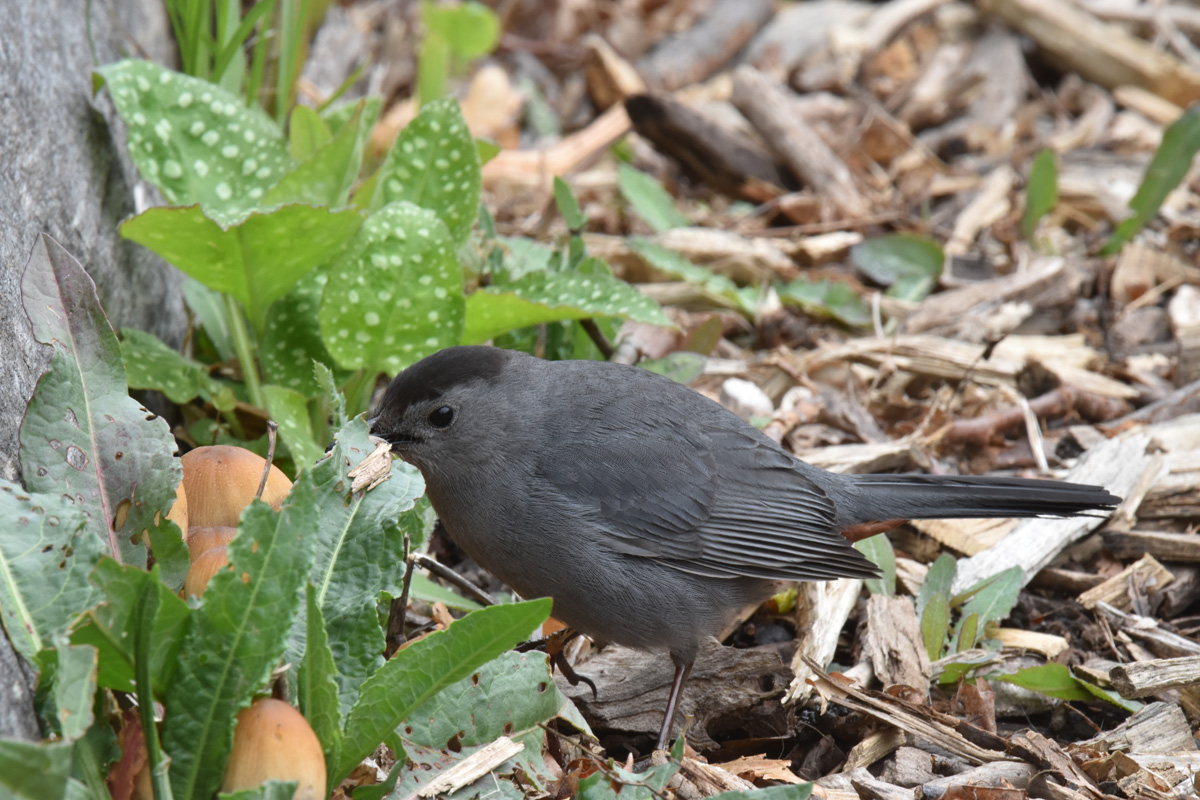
At first I thought this Catbird was eating some of the fungi or an insect on or beside the fungi but then I realized someone had put some shelled peanuts out!
Do Gray Catbirds Migrate?
Here in southern Ontario, Gray Catbirds are at the northern limit of their breeding range. Generally they migrate south for the winter. I look forward to their return each spring when the thickets in my woods start to “mew” again.
Related Reading
- Northern Mockingbirds Found in Snowy Southern Ontario
- What’s Mewing Like a Cat in the Lakeside Park Woods?
Join In
Have you heard a Gray Catbird calling? Did it trick you at first with one of its mimicked calls of another bird? Please share your encounter with a comment.

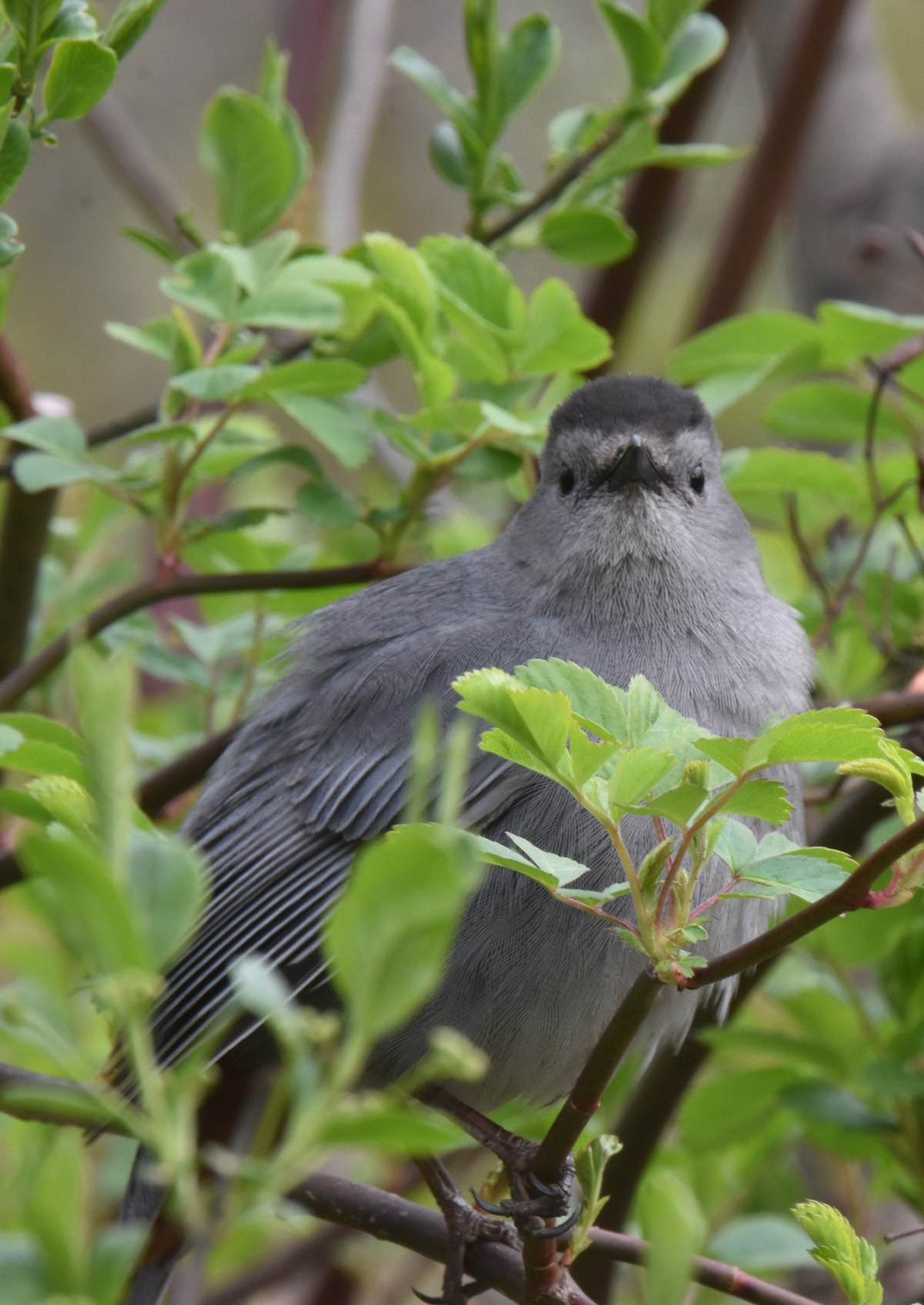
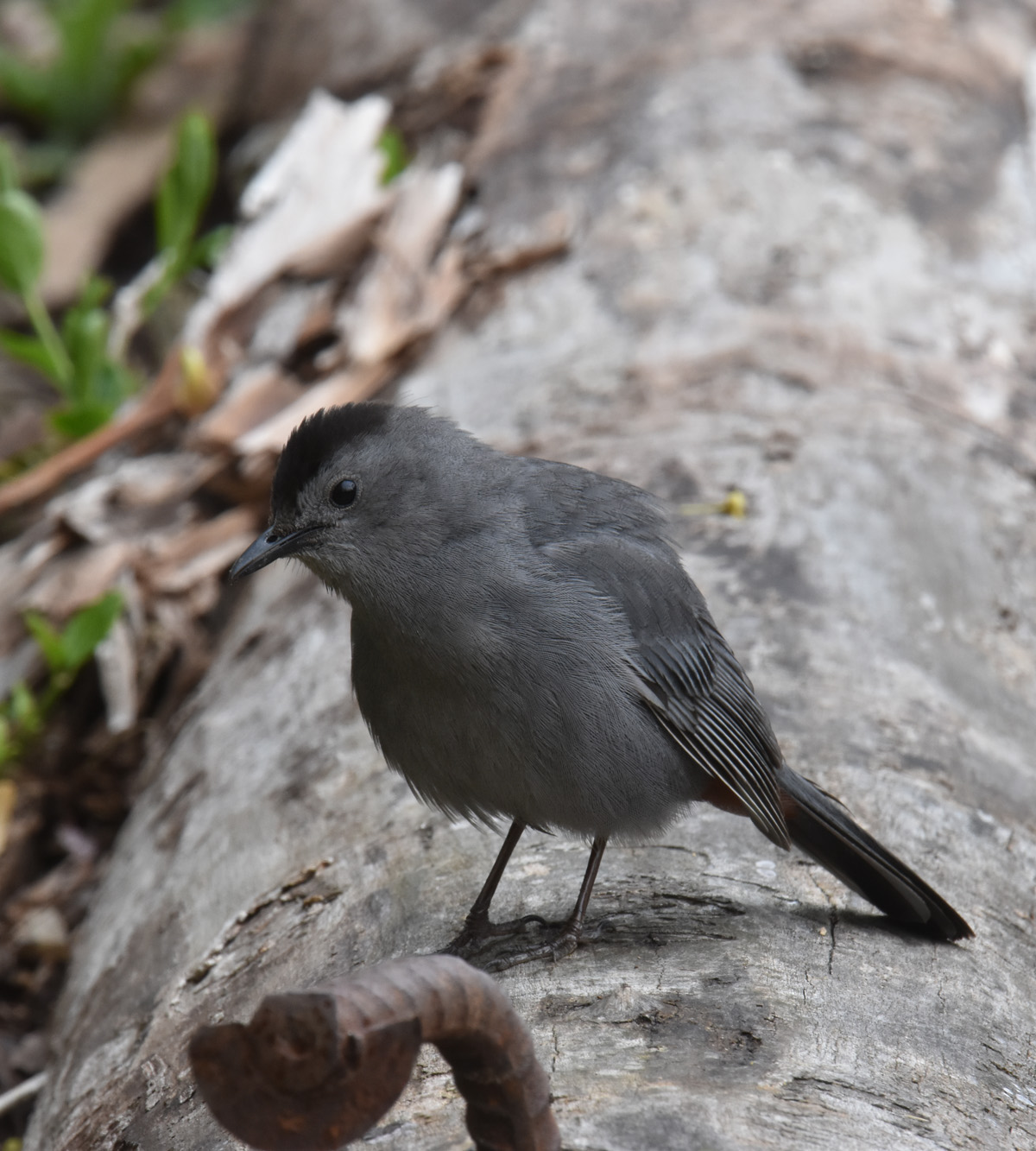
I live in NYC, Queens area. I love these pictures and them. Their songs are so sweet. I wasn’t sure if they were Catbirds or Mockingbirds. But because of the orange on their tail, I guess they are Catbirds. Do they eat fruit, like oranges?
They can eat fruit. I’m not sure how often they would eat fruit that wasn’t just growing on shrubs though.